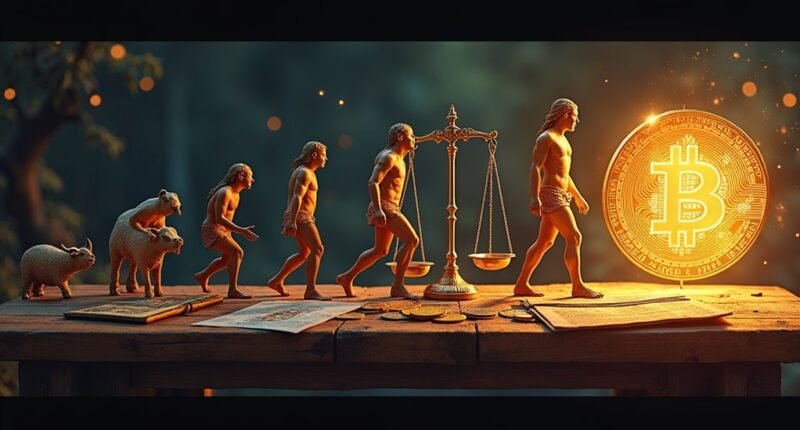As humans evolved from barter systems to more sophisticated methods of trade, they unwittingly laid the groundwork for the currency systems we recognize today, paving the way for everything from cowrie shells to Bitcoin.
In the early days, livestock like cattle served as a primitive but effective currency, a sort of ancient trade-off where a hefty cow could seal a deal better than a handshake. As agriculture took root, grains and plant products joined the ranks of barter, making it clear that people were ready to move beyond simply swapping chickens for shoes.
Fast forward a few millennia, and cowrie shells emerged as the currency of choice, especially in China around 1200 BC. These little beauties were so popular that they practically had their own fan club. Yet, like all good things, the need for standardization soon became apparent—after all, who wants to haggle over how many shells equal a goat?
Cowrie shells reigned supreme in ancient China, but soon enough, standardization became essential—no one wants to barter endlessly over shells and goats!
Then came the first metal money around 1000 BC, with bronze imitations of cowries leading the charge. These were followed by coins in Lydia around 500 BC, paving the way for the luxury of jingling metal in one’s pocket.
But the real game-changer? Paper money, first seen in 9th-century China, which made transactions as easy as flipping a pancake—until inflation turned it into something resembling a soggy pancake instead. The rapid depreciation of paper notes led to their disappearance in China around 1455. This shift laid the groundwork for the emergence of institutional ETF inflows, which would later influence modern financial systems.
The gold standard era brought a sense of security, where currencies were backed by gold reserves. Sounds stable, right? But as the Great Depression rolled in, countries began to ditch the gold link, giving way to today’s fiat currencies, which rely solely on trust and a government’s promise. This transition highlighted the challenges of the gold standard as a monetary system under pressure.
Enter Bitcoin—an ultra-modern marvel. It completes the evolution of money, embodying the ultimate trust-based system while dancing in the digital domain.









